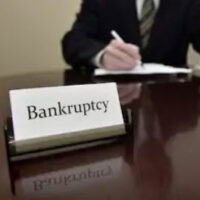What Is A Fraudulent Transfer In New York Business Bankruptcy Proceedings?

People are often tempted to take desperate measures to save failing businesses, but these could have serious impacts if you file a business bankruptcy in New York. A fraudulent transfer can be reversed by the court and may result in accusations of bankruptcy fraud.
Fraudulent Transfers In Business Bankruptcy
Bankruptcy is an option provided through the U.S. Court System that can help struggling business owners address overwhelming debts. As part of your, the court will consider your total debts and any property or assets you possess. While you may retain ownership of certain assets through exemptions, there are some items you may have to surrender.
Rather than doing so, some debtors opt to either sell or give away this property instead. If you were insolvent at the time the transfer was made or became insolvent after, this could result in either a denial of your bankruptcy petition or a demand on the part of the bankruptcy court to reverse the transaction. Fraudulent transfers generally include:
- Giving away property or assets to a friend or family member;
- Transferring title or ownership with the intent to retain full use of the property;
- Selling items yet failing to pay the accompanying debt;
- Selling items for less than their fair market value in an effort to stay solvent.
Voidable Transactions In New York Business Bankruptcy
The Uniform Fraudulent Transfer Act (UFTA) is a federal law adopted in many states, including ours, that addresses this issue in bankruptcy proceedings. In 2019, New York repealed and amended it to the Uniform Voidable Transactions Act (UVTA). Rather than referring to certain transactions as ‘fraudulent transfers’, it uses the term ‘voidable transactions’ instead. A few of the key changes, which may work for or against people filing a business bankruptcy, include:
- Clarifies categories of voidable transactions: The UVTA clarifies the two categories of voidable transactions. The first is those that apply to current and future creditors involving transfers made for the specific purpose of defrauding creditors and those lacking consideration, or reasonable equivalent value. The second applies only to current creditors and includes the above as well as fraudulent transfers made to insiders, such as friends or relatives.
- Rescinds the ‘good faith’ test: This reverses UFTA requirements for those challenging a transaction based on lack of consideration to prove it occurred in bad faith.
- Shortens the time to bring a fraudulent transfer claim: The UVTA allows four years to file a claim, rather than the six provided by the UFTA.
- Lowers the burden of proof: The UFTA requires ‘clear and convincing evidence’ of a fraudulent transfer. In contrast, the UVTA only requires a ‘preponderance of evidence’, making it easier to dispute and overturn transfers.
Let Us Help You Today
Struggling with overwhelming debts? Before taking any actions that could jeopardize your rights in either a current or future business bankruptcy, reach out to the Law Office of Harry D. Lewis first. To request a free consultation with our New York City business bankruptcy attorneys, call or contact our office online today.
